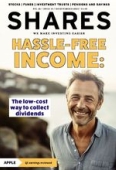Archived article
Please note that tax, investment, pension and ISA rules can change and the information and any views contained in this article may now be inaccurate.
What is a continuation vote and why does it matter to investors?

Unless they own shares in investment trusts, most readers probably will not have heard of the phrase ‘continuation vote’, and there is a chance a good many who do own investment trusts may be unfamiliar with them too.
However, as the recent ups and (mostly) downs at music royalty fund Hipgnosis Songs Fund (SONG) have demonstrated, continuation votes can be literally a make-or-break event for trusts and they should not be taken lightly.
In this article we look at how they work, why they matter and whether Hipgnosis may have set the scene for shareholders to take matters into their own hands at more investment trusts.
WHAT HAPPENED AT HIPGNOSIS?
Whereas most listed companies have an indefinite lifespan, investment trusts, which invest in other stocks or asset classes rather than carrying on a business, have to give their shareholders the
choice of whether to continue trading depending on their circumstances.
Most trusts have a provision in their Articles of Association for a continuation vote every three or five years, to be held at the company’s AGM (annual general meeting), but some trusts have ‘conditional triggers’ which require them to hold a continuation vote if, say, their market value falls below a certain level or the discount to NAV (net asset value) is persistently wide.
If shareholders vote against continuation, the assets will be sold, cash returned to shareholders, and the company will be wound up.
Hipgnosis, whose business was to make money from the rights to catalogues of songs which it acquired from musicians and composers, was listed on the London Stock Exchange in July 2018 and had a five-year continuation vote, meaning that at its AGM last month it had to seek permission from shareholders to continue its business for another five years.
In the event, shareholders voted overwhelmingly not to approve a further five-year mandate, forcing the board to ‘put forward proposals for the reconstruction, reorganisation or winding-up of the company to shareholders for their approval within six months’, including the option to liquidate all or part of the company’s portfolio.
Following the AGM, Sylvia Coleman, a senior independent director of Hipgnosis Songs Fund, commented: ‘The board and the investment adviser have each engaged widely with investors over recent months. While shareholders have not supported our proposed transaction or the continuation vote, it is clear they share our belief in the inherent quality and potential of these assets.’
Nevertheless, shareholders sent a clear message to the board and the investment adviser that they were fed up with them and the trust’s performance and they wanted change, even if that meant breaking it up. We discuss what could be next for Hipgnosis in this week’s news section.
HOW DISCOUNTS CAN TRIGGER A VOTE
While Hipgnosis investors had every reason to be unhappy with the performance of their shares, many investment trusts have performed poorly of late.
According to analysts at Winterflood, the average discount to NAV for the UK investment trust sector, excluding private equity fund 3i (III), has widened from 14% a year ago to 18% by the end of October, while according to index compiler FTSE Russell the value of the All-Share Closed-End Investments Index has fallen 8.4% over the same period.
The biggest discounts to NAV are typically in residential and commercial property trusts but leasing funds and private equity funds such as Chrysalis (CHRY), Petershill Partners (PHLL) and Seraphim Space (SSIT) are also trading at discounts of more than 50% to their net asset values.
For some funds, however, just trading at a discount of more than 10% for a year can be enough to trigger a continuation vote, which is what has happened at BioPharma Credit (BPCR).
The trust, which has a market value of over $1 billion and assets of $1.36 billion, announced earlier this month that its persistent discount over the 12 months to 31 October had triggered a ‘continuation resolution’, meaning shareholders have to be consulted before 31 December on whether the fund should keep trading as it is.
WHO ELSE IS IN THE FRAME?
Another fairly large trust which has been trading at a hefty discount to NAV for some time and has a continuation vote scheduled at its AGM next March, is Klarna owner Chrysalis Investments.
Although its NAV per share is around 135p, according to data from the AIC (Association of Investment Companies), the shares change hands for 57p or nearly 60% less than the theoretical break-up value of the business.
The Chrysalis board can clearly see which way the wind is blowing so to head off a shareholder revolt in four months’ time it has begun a consultation period with investors to look at its capital allocation policy, its level of cash reserves and its performance fees, so we wait with interest to see the upshot of the process.
Meanwhile, the Baillie Gifford-managed Schiehallion Fund (MNTN), which boasts more than $1 billion of assets and like Seraphim and Chrysalis owns stakes in unquoted companies, currently trades on a 67% discount to NAV.
Although it does not have a continuation vote scheduled – its Articles of Association say it has been ‘established with an unlimited life’ – again the board has read the runes and in an attempt to head off a rebellion is buying back shares, although it admits it has ‘limited available capital at this current time’.
This raises another issue for the trust industry – even if they wanted to buy back their own shares to control the discount to NAV, many investment companies aren’t in a position to do so as they have little liquidity, and they can’t exactly issue new shares at a whopping discount just to buy back their existing shares, so the gulf between prices and net asset values persists.
STAND BY FOR ACTION
On 15 October, investors in European Opportunities Trust (EOT), the £740 million fund managed by Alex Darwall which invests in ‘special growth companies’, will decide on the fund’s fate in a continuation vote at its AGM.
While the shares trade on a discount of less than 10% to NAV, far less than some of the trusts mentioned previously, the company has lagged its benchmark and its peers by a considerable margin over the last five years and it is this situation which investors have to consider.
After what it describes as ‘an extensive shareholder consultation exercise’, the board has proposed a performance-related tender offer for 25% of the shares if the trust does not equal or exceed the MSCI Europe total return index over a three-year period from 1 June 2023 to 31 May 2026.
However, as well as requiring approval at this year’s AGM, the resolution needs shareholder approval at the 2026 general meeting, by which time any buyback could be completely moot as the fund could continue to lag the benchmark for three years and investors would have no comeback.
‘We can understand it being offered as a carrot to gain support for the current year continuation vote, however we do not believe it should be conditional on passing the 2026 continuation vote,’ said Ewan Lovett-Turner, head of investment companies research at Numis.
With such a high-profile manager running such a well-known and widely owned trust, the vote on 15 November is sure to be closely watched, not just by investors but by managers and boards of other trusts as well.
Disclaimer: The author owns shares in Sequoia Economic Infrastructure Trust and TwentyFour Select Monthly Income Fund
Important information:
These articles are provided by Shares magazine which is published by AJ Bell Media, a part of AJ Bell. Shares is not written by AJ Bell.
Shares is provided for your general information and use and is not a personal recommendation to invest. It is not intended to be relied upon by you in making or not making any investment decisions. The investments referred to in these articles will not be suitable for all investors. If in doubt please seek appropriate independent financial advice.
Investors acting on the information in these articles do so at their own risk and AJ Bell Media and its staff do not accept liability for losses suffered by investors as a result of their investment decisions.
Issue contents
Feature
Great Ideas
Investment Trusts
News
- Apple wins over jumpy investors despite China growth worries
- Fortinet slumps nearly 20% on weak revenue and outlook
- Hipgnosis looks to steady ship with appointment of ex-Roundhill chair after suspending dividends
- Ferrari speeds to fresh highs following another record quarter
- Does a strong start to November for shares signal the start of a Santa rally?
- Ball deal and buybacks in focus for BAE Systems amid Middle East conflict

 magazine
magazine








